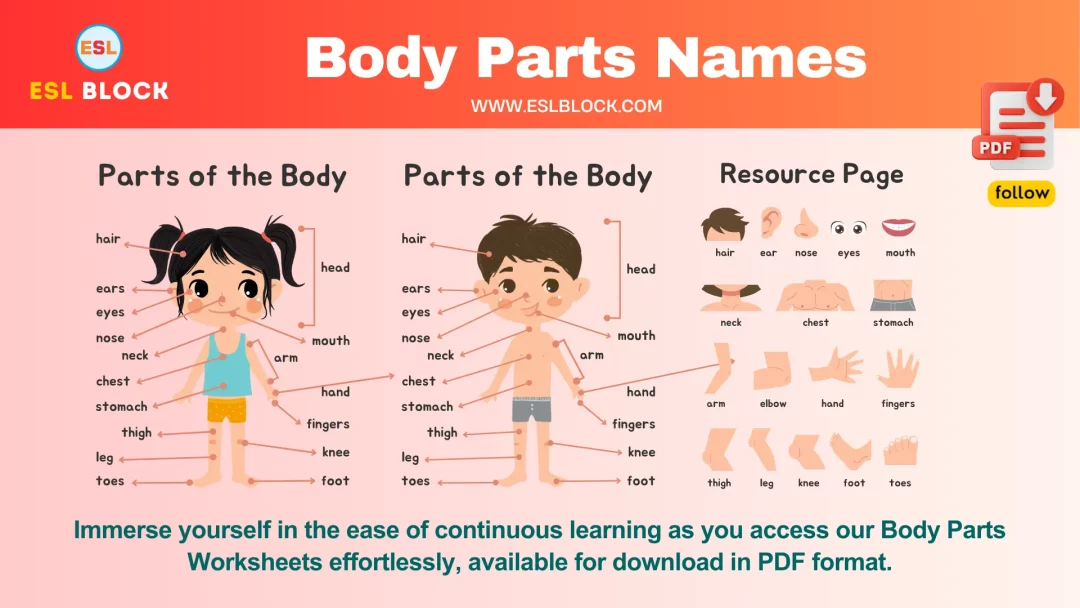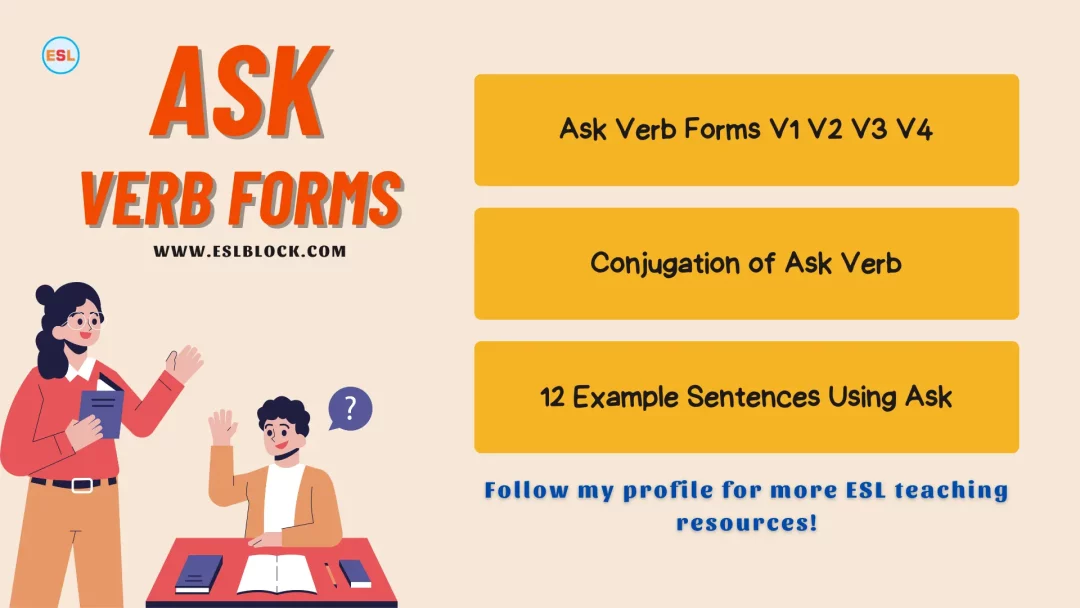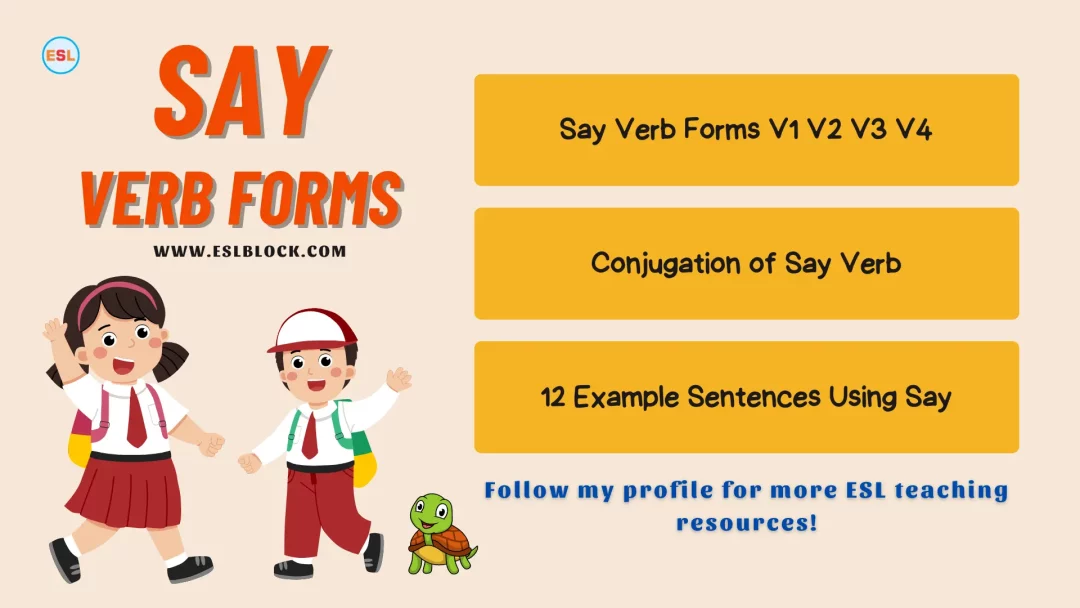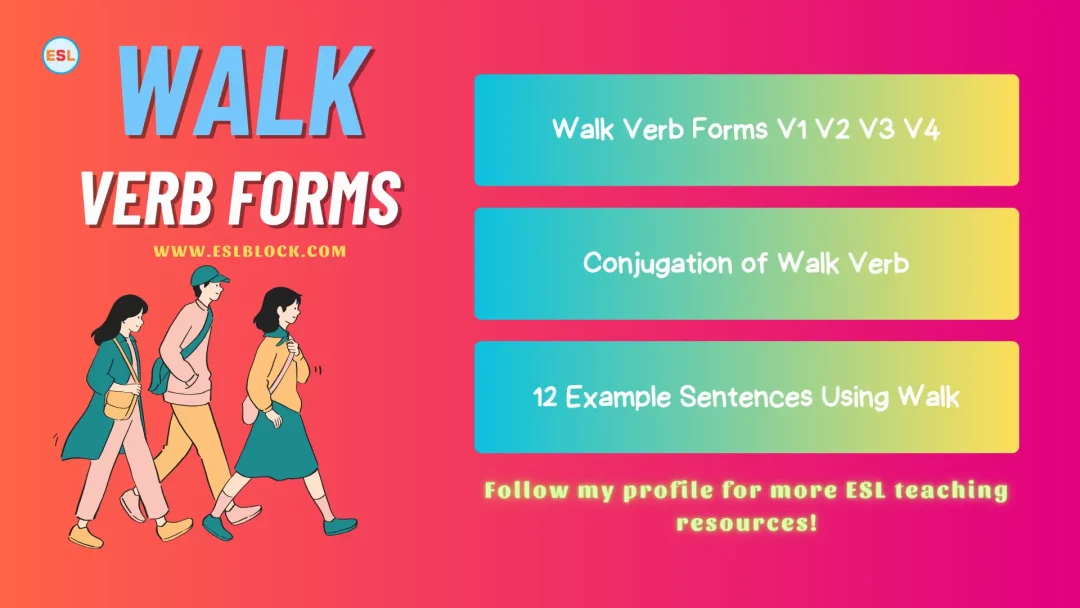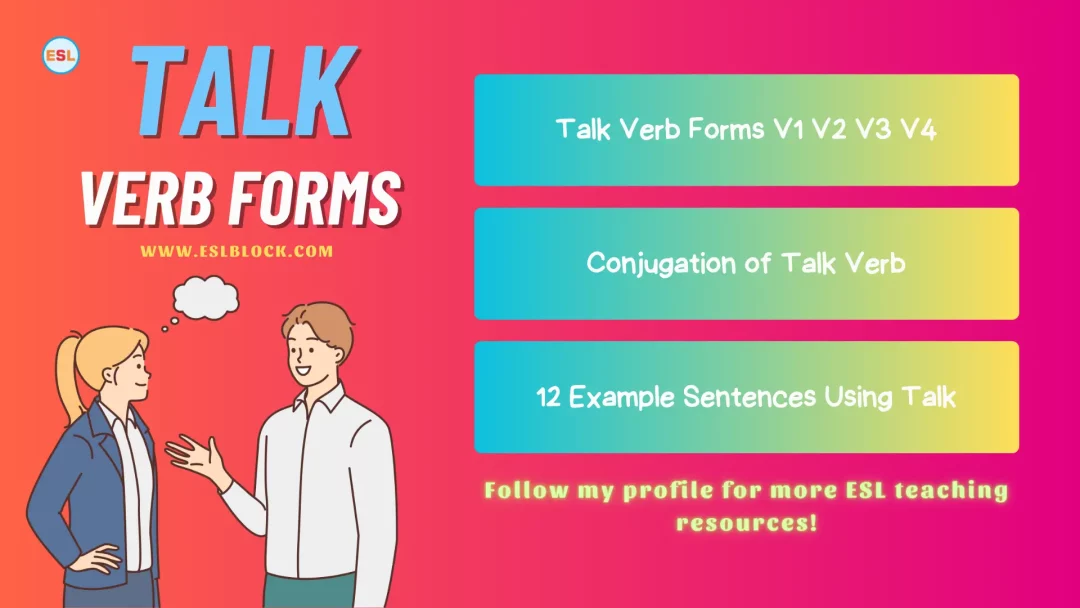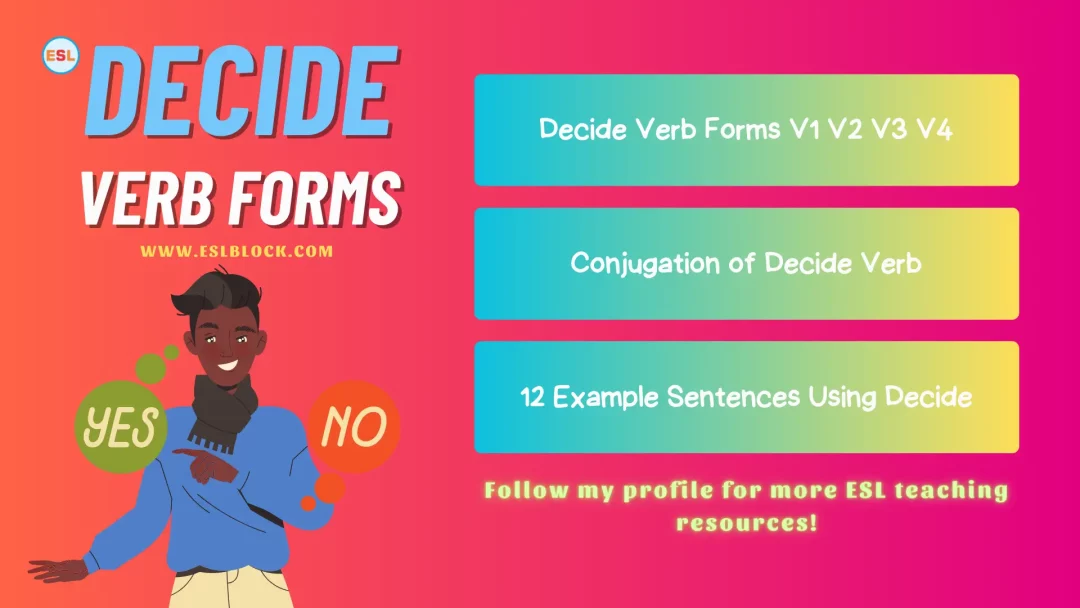Rules for Using Pronouns with Example Sentences
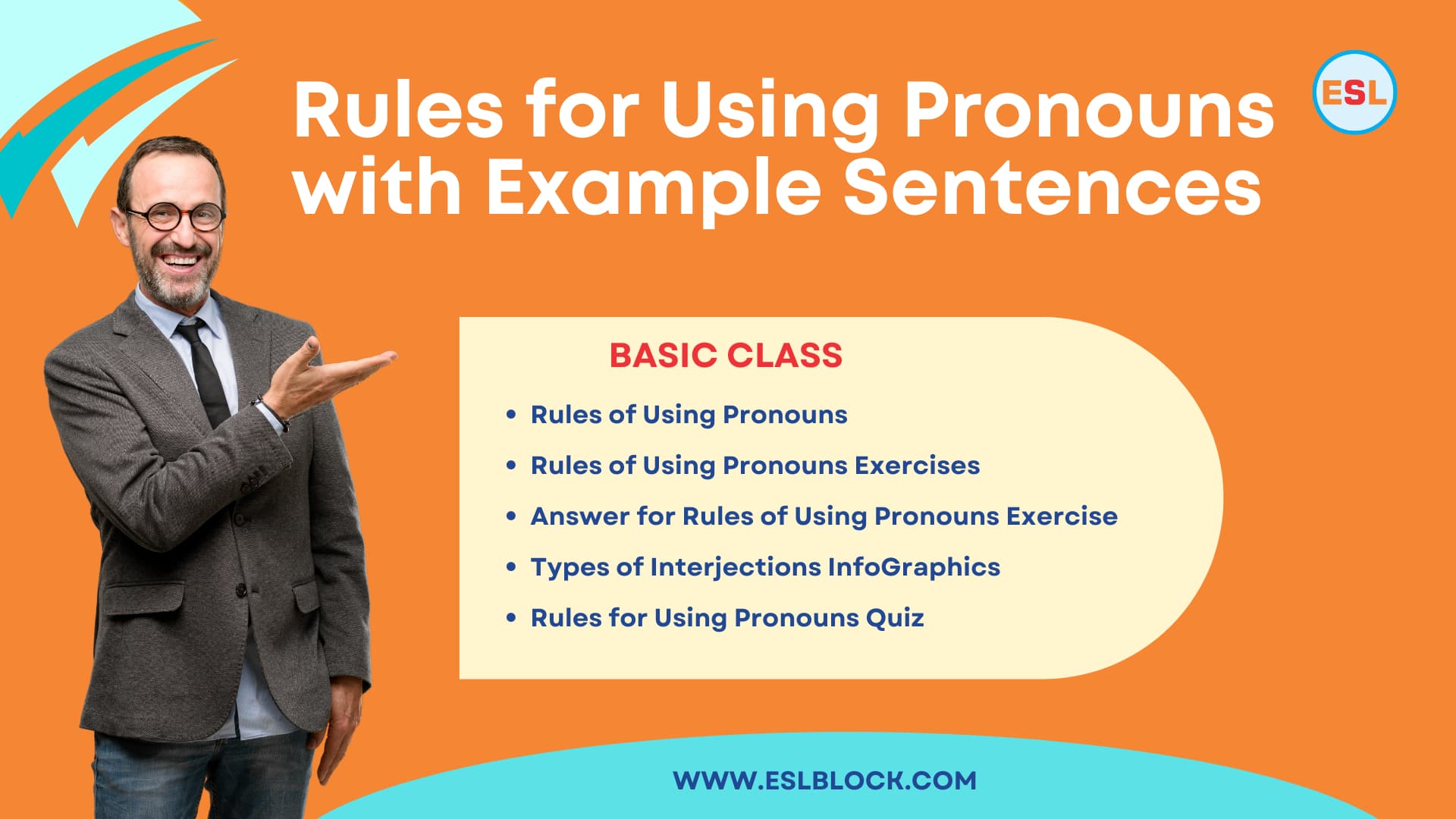
![]()
In this article, I am going to explain What are the Rules for Using Pronouns with Example Sentences? A pronoun is one of the nine parts of speech. The other eight are interjections, nouns, verbs, adjectives, articles, conjunctions, prepositions and adverbs. Pronouns are short words that are used to replace a noun or a noun phrase. You may perform a pronouns quiz for more understanding.
Also read: What is an Interjection of Parts of Speech in English Grammar?
Rules of Using Pronouns
There are three fundamental types of pronouns, subject (for example, he); object (him); or possessive (his). Here are ten easy rules for using pronouns to guide you avoid mistakes with English pronouns.
Rule 1
Pronouns for the subject are used in situations where the pronoun is the main subject in the phrase. Subject pronouns can be remembered quickly by filling in the blank space in a simple sentence.
- He did the job.
- She did the job.
- We did the job.
- They did the job.
- Who did the job?
Rule 2
Subject pronoun is also used if it renames the subject. It will follow to be verbs, like is, am, are, was, were, will be, had been, etc.
- It is she.
- This is she working.
- It is we who are accountable.
- It could have been they.
- It is just I at the gate.
Rule 3
This rule can shock those concentrating on language: when someone refers to the personal pronoun ( I, you, he, she, we, they), it is taken as the verb that agrees with the pronoun.
- It is I who am sorry.
- It is they who are mistaken.
Rule 4
In addition to subject pronouns, you can also find object pronouns which are more precisely referred to as indirect object, direct object, or the object of the preposition. Object pronouns include the following: me, him, herself, us, them, and themselves.
- Benjamin saw him.
- Give her the bike.
- Are they talking to me?
Rule 5
The pronouns which, who, and what can be singular or plural according to the subject. When the subject is singular, you can use the singular verb. If the subject is plural, you can use the plural verb.
- She is the only one of those ladies who is always on time.
- She is one of those ladies who are always on time.
Rule 6
The singular pronouns ( I, he, she, everybody, everyone, nobody, anyone, somebody, someone, no one, either, neither, each, etc.) require singular verbs. This rule is often ignored when using pronouns each, neither, or either. These three pronouns are always singular verbs.
- Each of the singers sings well.
- Either of us is skilled in doing the assignment.
- Neither of them is available to play right now.
Rule 7
To determine whether to use the pronoun subject or object following the words than or as, mentally complete the sentence.
- Olivia is as intelligence as she/her.
- William is taller than I/me.
- Benjamin would rather talk to her than I/me.
Rule 8
The only instance where it’s contains an apostrophe when it’s a contraction for it is and it has. The only way the word who’s apostrophe occurs when it is referring to the person who has. There is no apostrophe within oneself. Beware of “one’s self,” a frequent mistake.
- It’s been a hot evening.
- The thermometer reached its highest reading.
- William’s the one who’s always on time.
- She’s the one whose husband is always on time.
- Keeping oneself ready is essential.
Rule 9
Reflexive pronouns are used in the sentence when both the subject and the object of a verb are the same thing or person.
The pronoun that ends in -self or -selves s called a reflexive pronoun. There are total nine reflexive pronouns: yourselves, myself, yourself, himself, herself, itself, oneself, ourselves, and themselves.
- Oliver helped himself.
- I worked myself.
- You saw me being myself.
- She worked herself.
- He himself finished the whole assignment.
Rule 10
If a pronoun is connected with a noun by and, mentally remove the and + noun to avoid problems.
- Incorrect: His and his brother came over.
- Correct: He and his brother came over.
- Incorrect: I invited she and her husband.
- Correct: I invited her and her husband.
- Incorrect: William asked my brother and I.
- Correct: William asked my brother and me.
Rules for Using Pronouns Exercise
These exercises will help you understand the rules for using pronouns. To complete each sentence, choose the best answer.
- ________ The monster’s got him!
- We killed ________.
- ________ are a boss.
- ________ play pole vaulet.
- I’ve lost ________ book.
- ________ are smart girls.
- Benjamin sold ________ car.
- Where are ________ shoes?
- The fighters killed ________.
- I learned German by ________.
- ________ knows where he is.
- Would you like ________ to eat?
- ________ else suggested going out.
- ________ is interesting in the movie.
- ________ was ready for the concert.
- She can get a driving license if ________ is 18.
- ________ are the most intelligent kids here.
- Would you like ________ to play with?
- ________ is the best volleyball player on the team.
- Was there ________ they knew at the university?
- The day ________ the concert takes place is Sunday.
Answer Key:
- We killed him.
- You are a boss.
- I play pole vaulet.
- I’ve lost my book.
- You are smart girls.
- Benjamin sold his car.
- Where are our shoes?
- The fighters killed him.
- I learned German by myself.
- Someone knows where he is.
- Would you like something to eat?
- Nobody else suggested going out.
- Nothing is interesting in the movie.
- Everything was ready for the concert.
- She can get a driving license if she is 18.
- They are the most intelligent kids here.
- Would you like something to play with?
- She is the best volleyball player on the team.
- Was there anyone they knew at the university?
- The day when the concert takes place is Sunday.
Rules for Using Pronouns InfoGraphics
Here are some printable infographics about Rules for Using Pronouns with Example Sentences. Printable infographics are a fantastic way to share a significant amount of details in a short time in a stunning way. The Rules for Using Pronouns with examples of infographics can help teachers and students to share their thoughts easily.
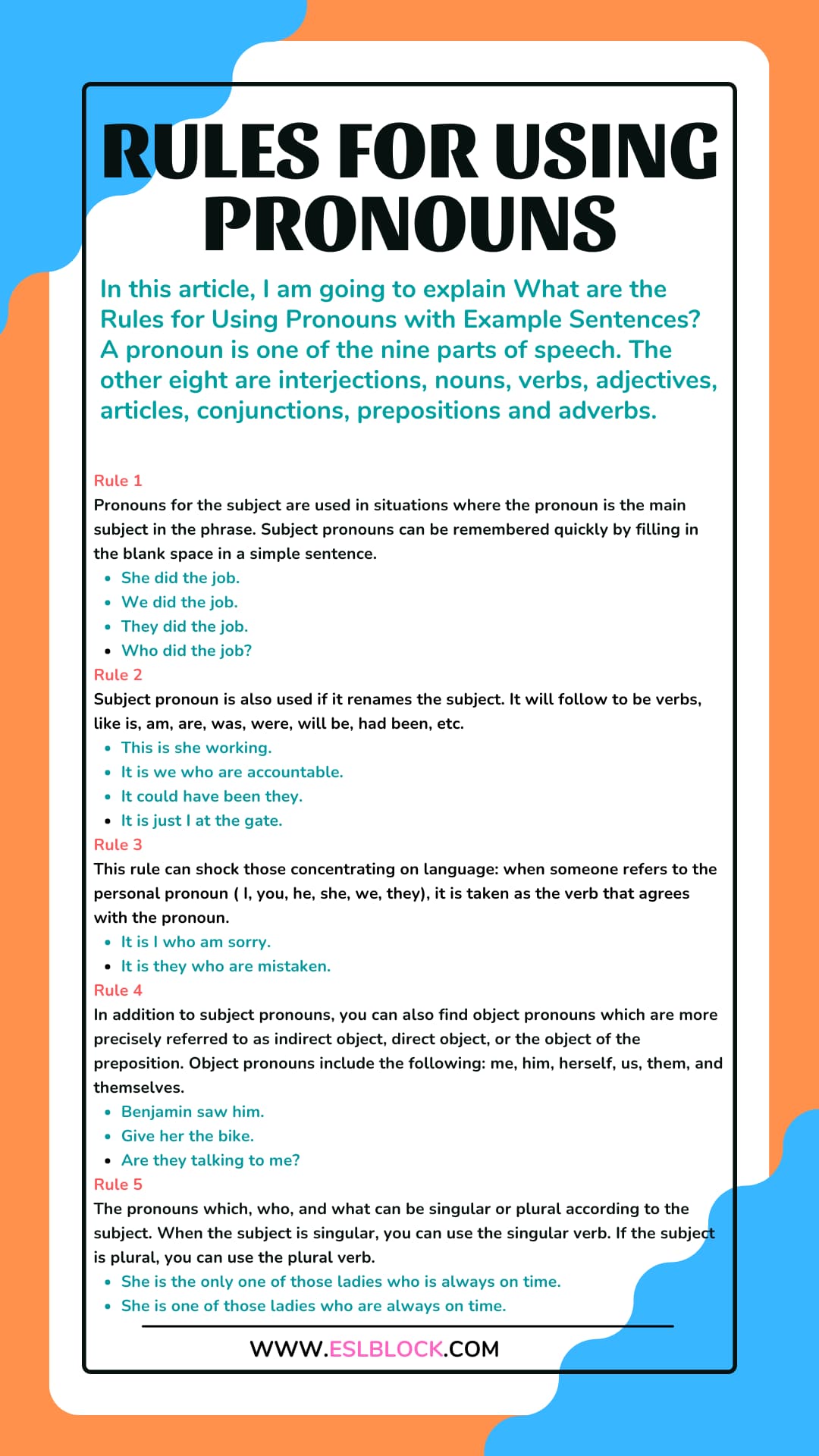
My Considerations
With this set of Rules for Using Pronouns with Example Sentences, you will quickly determine whether you are making the most effective use of the Rules for Using Pronouns and how they could be used to enhance English writing skills.
Since the Rules for Using Pronouns are the main part of English Grammar, the importance of developing English learning skills cannot be undervalued without Rules for Using Pronouns with examples.
You can read the above sample sentences about Rules for Using Pronouns with Example Sentences to improve your understanding of English grammar.
Encourage your children to learn these basic but common rules for using pronouns with example sentences, by following the simple example sentences given above. Then, save this list of rules for using pronouns, handy for your kids in the future.
If you enjoyed a printable infographic about Rules for Using Pronouns with Example Sentences, I’d be very thankful if you’d help it spread by emailing it to your friends or sharing it on Pinterest, Reddit, Twitter, Instagram, or Facebook. Thank you!
Also read: Adjectives That Start With Y
Recap of what we just learned
- Rules of Using Pronouns with Example Sentences
- Rules of Using Pronouns
- Rules of Using Pronouns Exercises
- Answer for Rules of Using Pronouns Exercise
- Types of Interjections InfoGraphics
- Rules for Using Pronouns Quiz
With ESLBLOCK, you will not face problems studying new ideas. If you are in doubt, about the qualities of blog posts about rules for using pronouns, reach us through our blog’s comment section. Keep checking back! We’ll attempt to give you feedback as early as possible. Thank you!
Also read: Adjectives That Start With Z
Rules for Using Pronouns Quiz
Related Topics
Explore the full list of Adjectives to Describe a Person from A to Z!
- A Adjectives to Describe a Person
- B Adjectives to Describe a Person
- C Adjectives to Describe a Person
- D Adjectives to Describe a Person
- E Adjectives to Describe a Person
- F Adjectives to Describe a Person
- G Adjectives to Describe a Person
- H Adjectives to Describe a Person
- I Adjectives to Describe a Person
- J Adjectives to Describe a Person
- K Adjectives to Describe a Person
- L Adjectives to Describe a Person
- M Adjectives to Describe a Person
- N Adjectives to Describe a Person
- O Adjectives to Describe a Person
- P Adjectives to Describe a Person
- Q Adjectives to Describe a Person
- R Adjectives to Describe a Person
- S Adjectives to Describe a Person
- T Adjectives to Describe a Person
- U Adjectives to Describe a Person
- V Adjectives to Describe a Person
- W Adjectives to Describe a Person
- X Adjectives to Describe a Person
- Y Adjectives to Describe a Person
- Z Adjectives to Describe a Person


